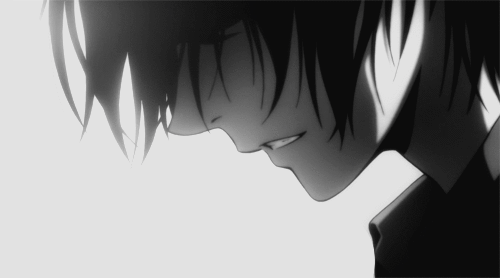@Dialogue discussion
Dialogue makes the story feel more lively. If you have a story without any dialogue (and without direct thoughts), it will probably feel a bit distant and detached. What the better option is depends on the intention behind the scene, chapter or story.
Too much dialogue might give you the impression that there are just "talking heads". You know, people standing around just conversing. Even if there is some description, if you have too much dialogue, people could bypass it.
I have read both types. Short stories without any sort of dialogue, and short stories that consisted
only if dialogue. Both were quite fun to read. It were challenges on writing sites I'm registered at, I believe.
It's interesting to see how you can still convey all the information needed even when you choose to relinquish either dialogue or description.
Other than the extremes: I usually like to have some dialogue in every chapter, especially when I'm in that strange mood where I feel lonely but still don't want anyone to bother me xD Then it's nice having fictional conversations going on. As I said, it makes the story feel livelier. (kind of like turning on the TV when you're alone because it makes you feel less alone xD)
But I also usually don't care that much either way if the story is good. As long as a little dialogue is in there, it's fine. And then again, some stories work wonderfully without any, and probably wouldn't have the same impact if there was dialogue. As you see, it really depends xD
Yami-san wrote:Traumatic backstories can help readers connect to their characters. I don't mind them, as long as they're not constantly rehashed and angsted about.
I really want to write a book/story with unorthodox methods, like deliberately uncapitalized words and backwards sentences. The intent is to be very dreamlike, but I feel like it would just annoy the heck out of the readers.
? i am where
. dark here is it
. scared very so scared am i
. monster comes here
! scared
!
there were a m i l l i o n tiny pieces and i stooped down to pick them up
they g l i n t e d in the sun
my dream f r a g m e n t s
Something like that, I suppose. What do you think? Should I go for it?
I just needed to reply to this *cough*
If the whole book would be written like that I probably would not read it, but if it's only (dream) sequences in the story, I'd love them to be like that :3
I remember having read a story about an empath. It was in first person, and whenever his empathy got out of control, the author wrote his thoughts all lower-case and without any punctuation whatsoever. I always thought it was beautifully done.
@tragic pasts
I see it the way most of you do. As long as the characters don't wallow in self-pity all the time, it's fine.
Take Harry Potter, for example. Yes, his parents died and he grew up with a family that hated him. It shaped Harry into who he is and he didn't pity himself. It was an important plot point and the way he grew up taught him to be grateful for what he got in the end.
That's one example I can think of that most of you should know xD
Other than that, in my current story, all of the more important characters have very tragic pasts (it's a requirement for the job they do). But they all have gone through a mandatory therapy before the story even begins and are all pretty stable and don't go off into tangents about how terrible terrible their lives are.
The past of the main character will cause emotional turmoil for him, though, and he will freak out, but that's rather because the same situation could (and will) be happening to him again *cough cough* Yeah, I'm not very nice to my characters for that story. xD
BUT, big BUT here: If the character suffers from PTSD or major depression, then of course he will show symptoms like being very jumpy or brooding constantly or being apathetic or sad. For me, it depends a lot on how the author portrays it. If it's believable and important for the story, it's fine the way it is. I rather want a realistic portrayal of such a disorder than a character brushing it off and being able to keep it at bay, which would be very unbelievable.




























